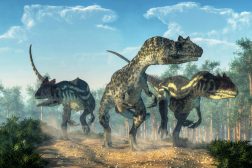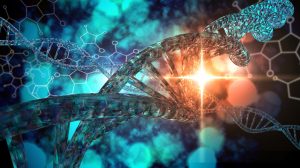Definition
noun, plural: osteopetroses
A rare hereditary disorder in which the bones are becoming excessively dense, thick, and brittle.
Supplement
Osteopetrosis is an inherited defect in bone resorption. There is a deficiency of osteoclasts, hence, too little bone is being resorbed, resulting in too much bone being created.
There are three major types of osteopetrosis:
- Osteopetrosis, autosomal recessive; malignant infantile type
- Osteopetrosis, autosomal dominant; adult type
- Osteopetrosis, mild autosomal recessive; intermediate type
The autosomal dominant osteopetrosis is the mildest form whereas the autosomal recessive type is lethal in infancy.
Word origin: Greek word “osteo”, meaning “of the bone” + petrō-, var. s. of petroûn to turn to stone + -sis.
Also called: marble bone disease, Albers-Schonberg disease, osteosclerosis fragilis generalisata.
Compare: osteomalacia, osteoporosis.
See also: osteosclerosis.







